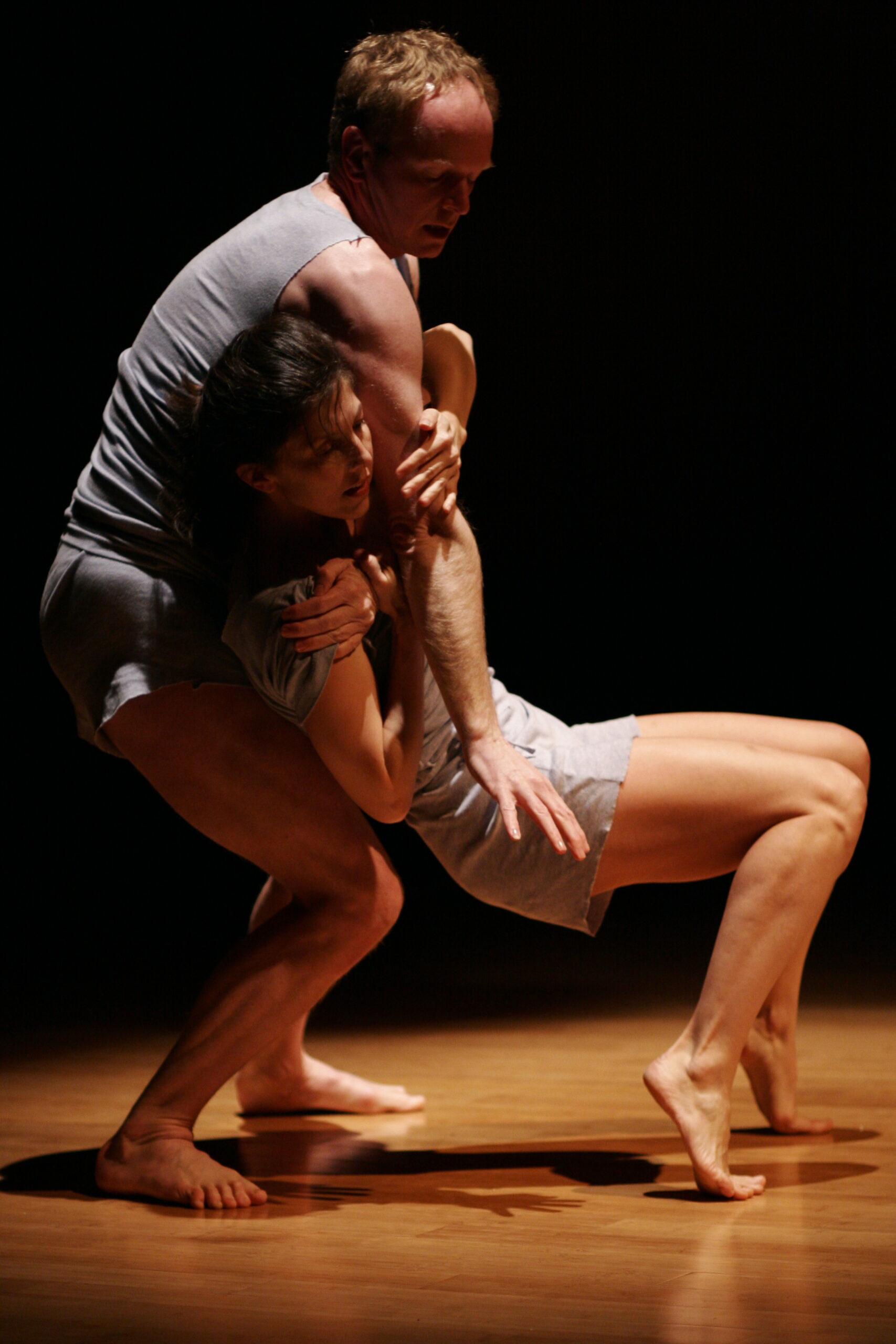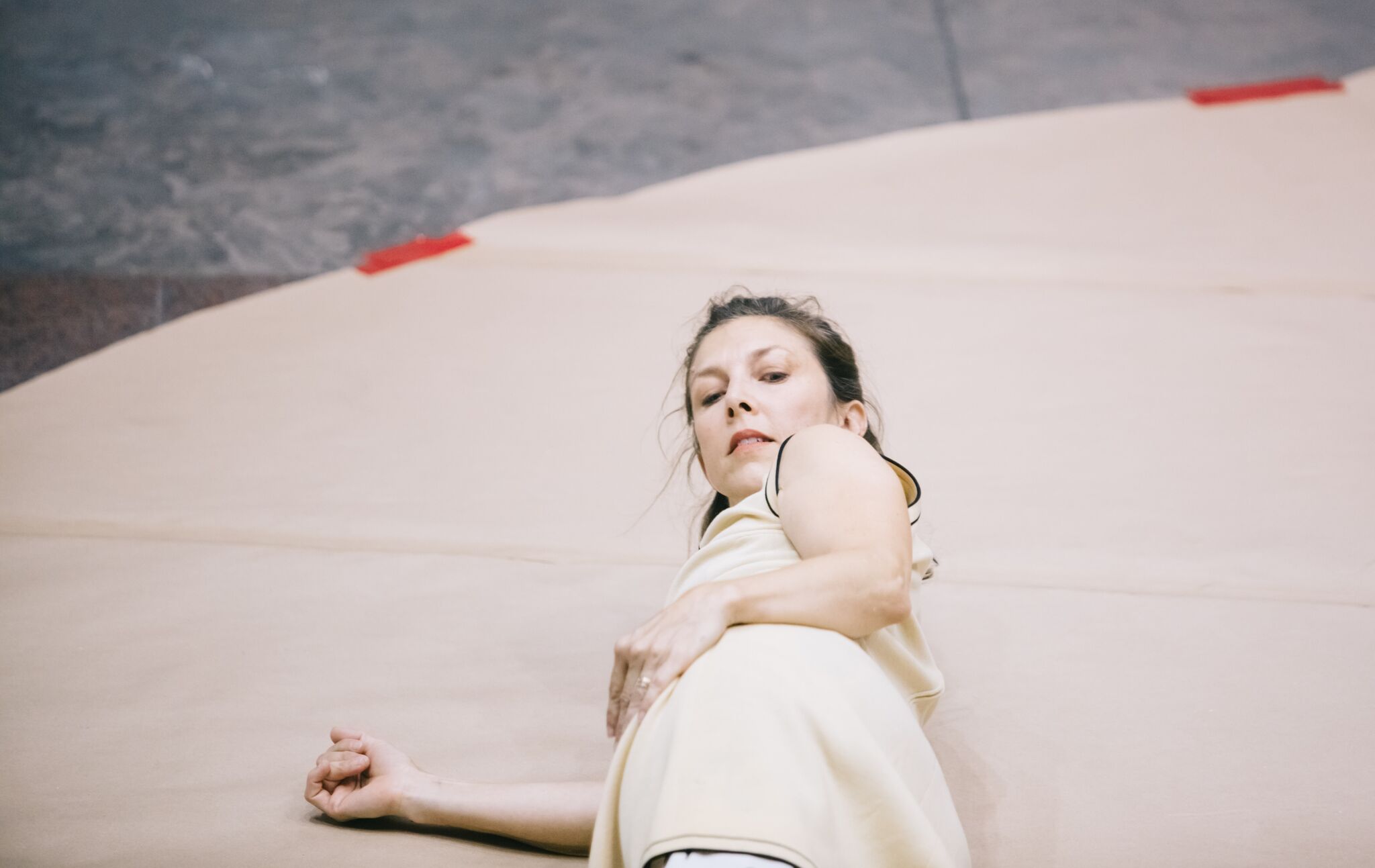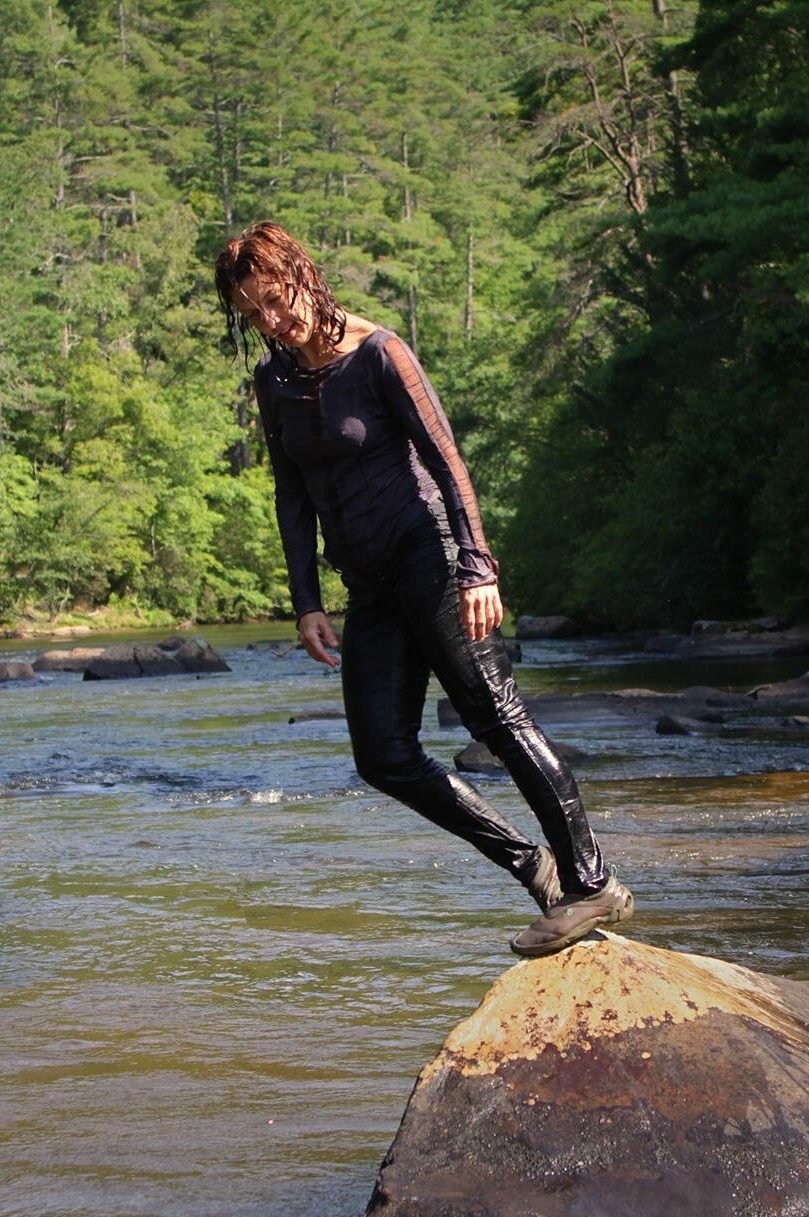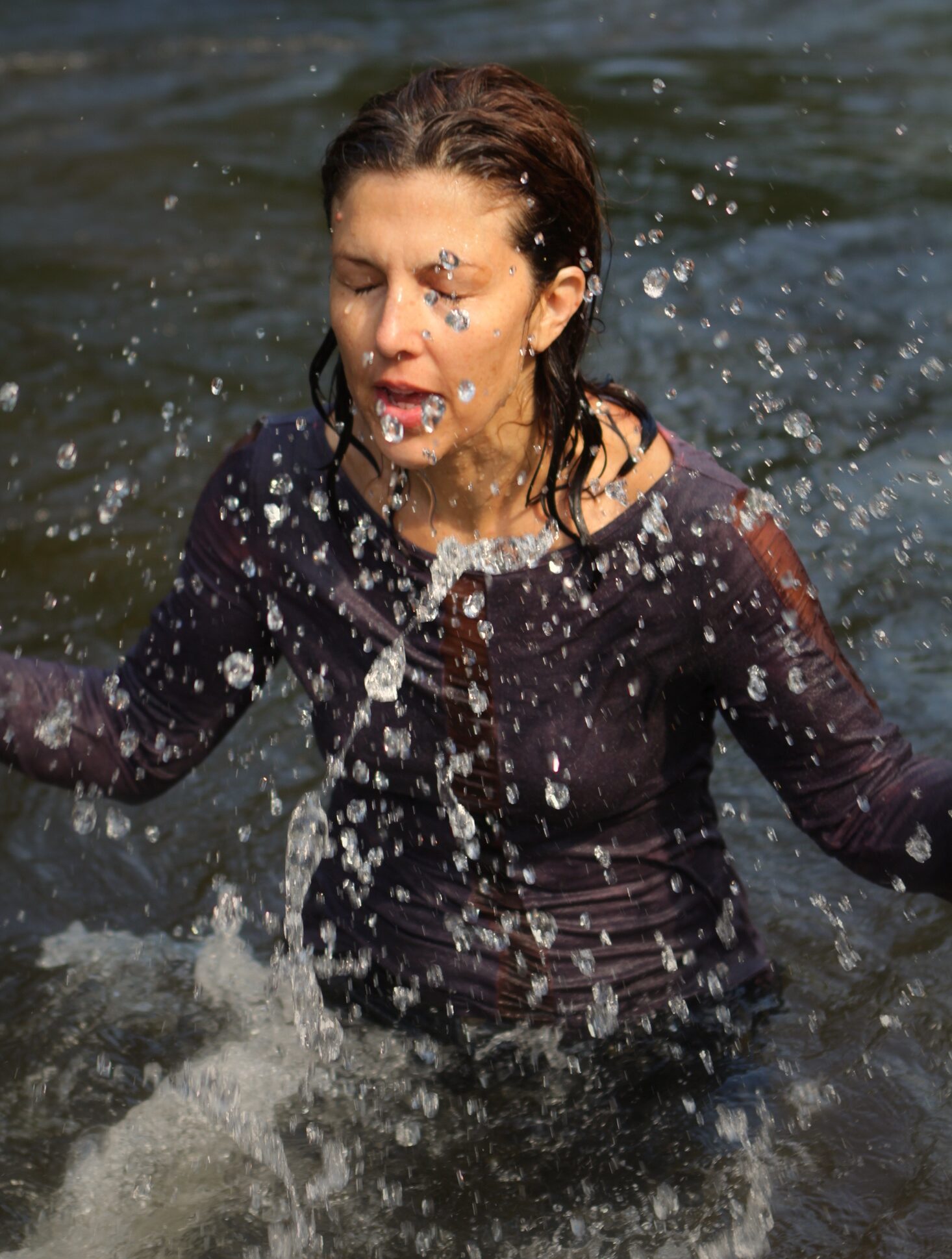
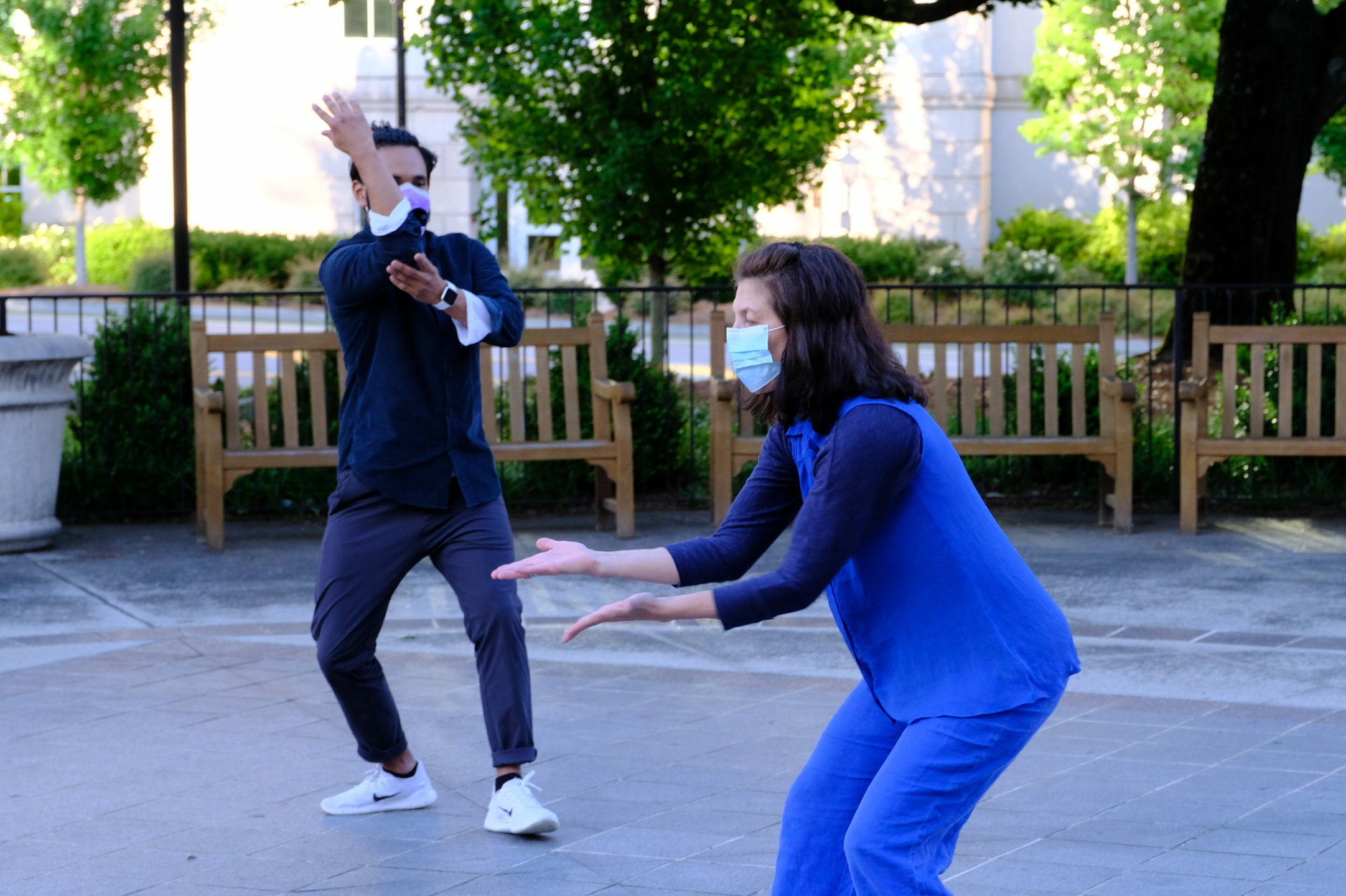
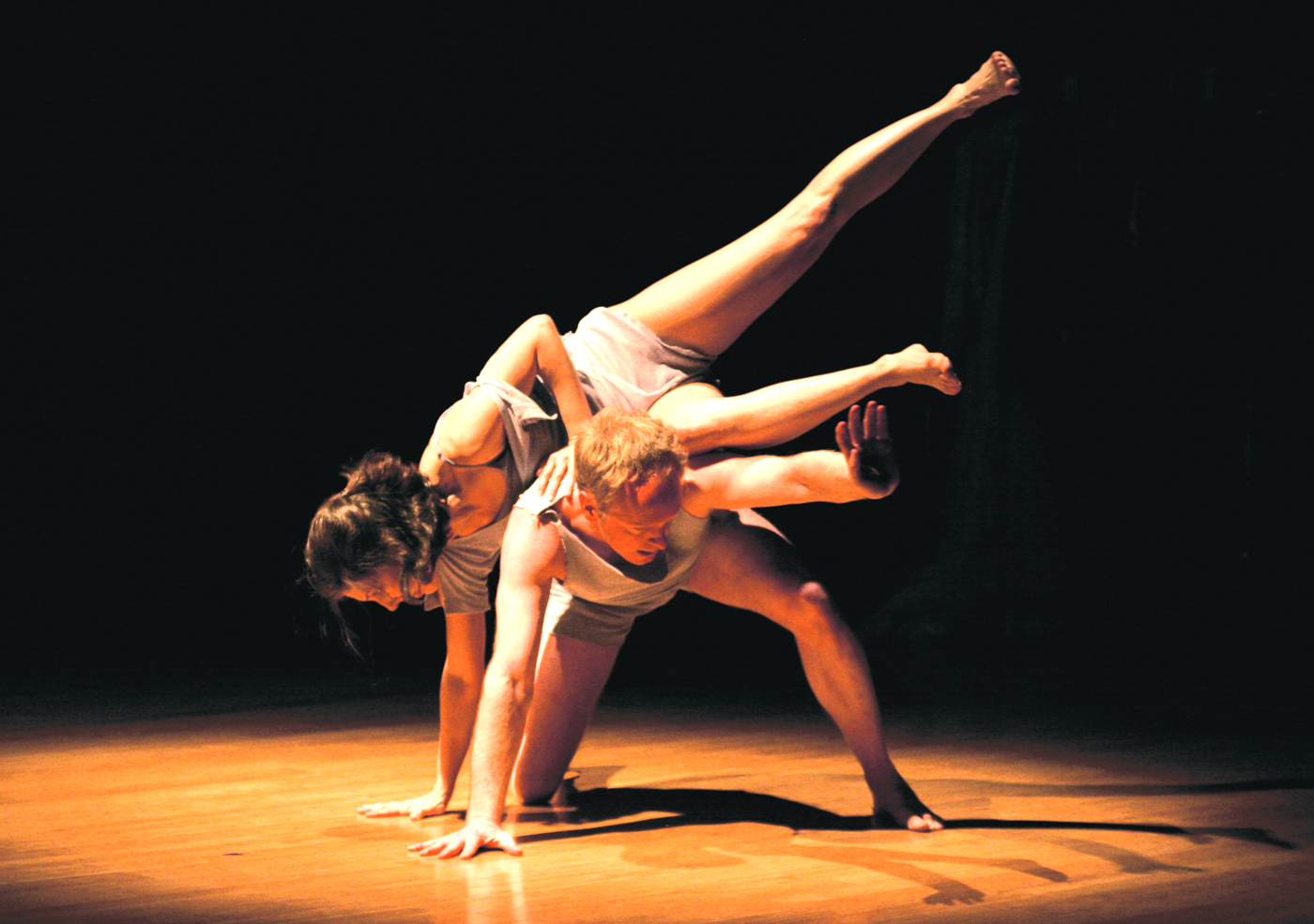
About the Artist
Like many who were fortunate to study dance in a small southern town, my first “recitals” were about performing memorized steps in a line. Since then, so many incredible teachers, collaborations, performance opportunities, and choreographic processes have shaped my curiosities. I am a choreographer, improvisational performer, educator, environmentalist, and an activist. I thrive in pluralistic environments, believing everyone’s unique story provides a way to see and feel with more empathy and compassion. Listening and collaborating are prioritized in each process and my way of being. I develop improvisational scores that invite play, kinesthetic listening, and choice. These features empower movers, expand awareness, and build new connections within the body and among the individuals responding to each other. I recognize that I have much broader interests in the evolution of humans, particularly our means of survival and the cultures that shape us as movers and thinkers. My work is concerned with human liberation and the actions we must take to sustain resources on this planet. Movement can be a catalyst for change.
